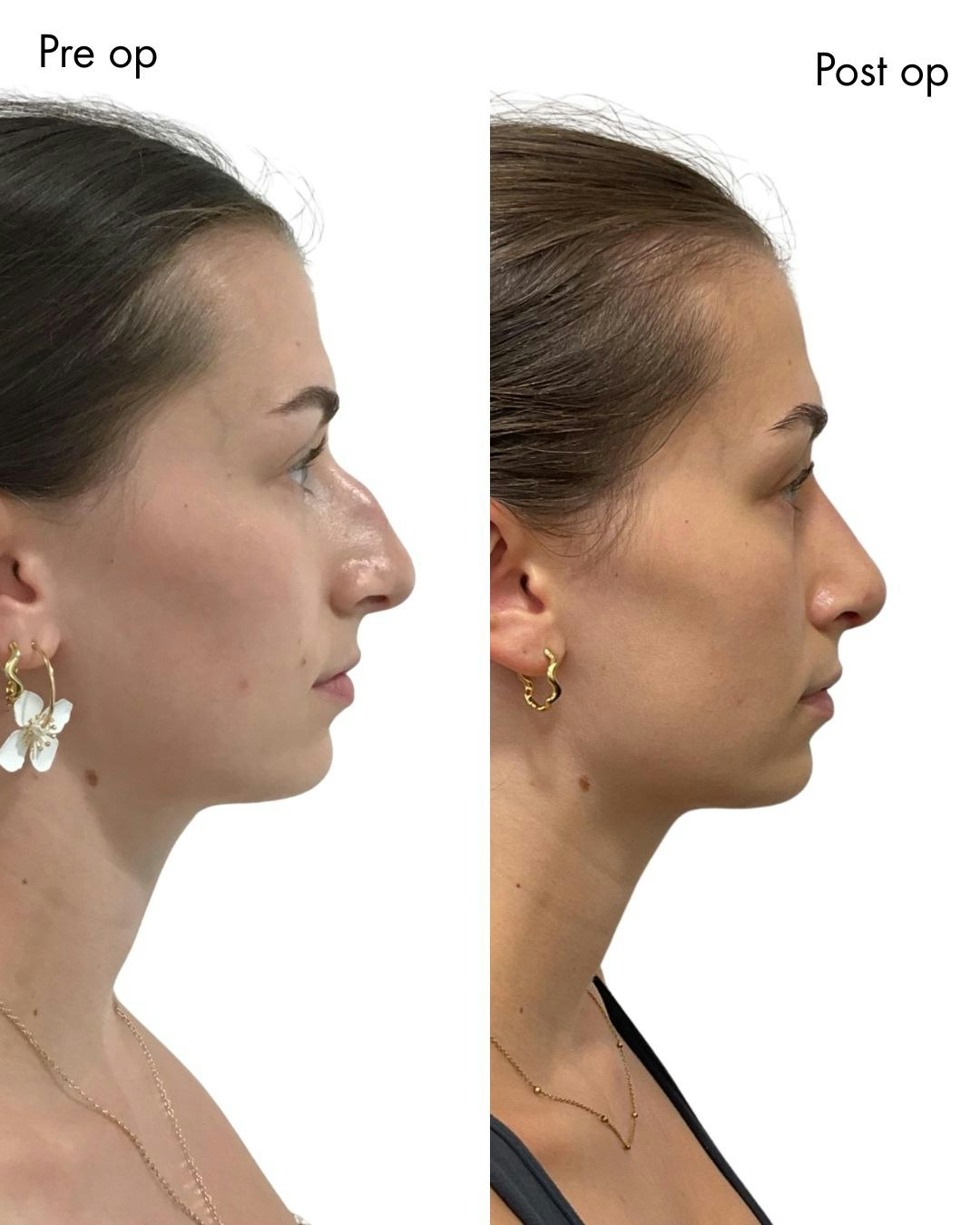Understanding labiaplasty: The basics
Before diving into the specifics, let's start with what a labiaplasty actually involves and why people choose to have it done.
Labiaplasty is a personal choice, and people pursue it for all sorts of reasons – whether that's to feel more confident, to address physical discomfort, or simply to feel more like themselves
What is the purpose of a labiaplasty?
A Labiaplasty is a surgical procedure that reshapes or reduces the labia minora (the inner folds of skin around the vaginal opening) and the labia majora (the outer folds). The reasons people seek this surgery tend to fall into two categories:
For cosmetic reasons:
While visible or prominent labia are completely natural, many people choose labiaplasty because they feel self-conscious about how their labia look. Perhaps one side is noticeably different from the other, or excess tissue extends beyond the outer labia.
The surgery can create a more symmetrical appearance or reduce tissue that feels too prominent. For many patients, this translates to increased confidence and comfort.
For functional relief:
Others experience genuine physical discomfort caused by their labia. This might include chafing during exercise, pain during sex, irritation when wearing certain clothing like swimwear or tight jeans, or difficulty with hygiene. In these cases, labiaplasty isn't just cosmetic – it's about improving day-to-day comfort and quality of life
Does a labiaplasty make you tighter?
This is a common misconception, but no, labiaplasty doesn't tighten the vagina. The labia are external, and the surgery only addresses excess tissue in this area. Labiaplasty does not affect vaginal tightness or the internal vaginal canal.
Labiaplasty eligibility and timing
Wondering if you're a good candidate for labiaplasty? Here's what typically makes someone suitable for the procedure.
How do I qualify for a labiaplasty?
You're likely a good candidate if you:
Are over 18 and have finished puberty (the labia continue developing into early adulthood)
Experience physical discomfort or irritation, or feel self-conscious about your labia
Are in good overall health without conditions that might complicate healing
Have realistic expectations about what surgery can achieve
Your surgeon will assess your individual situation during a consultation to see whether labiaplasty is appropriate for you.
What is the ideal age for a labiaplasty?
There's no single "perfect" age for this surgery. Many patients are in their late 20s through to their 50s, but what matters most is that your body has fully matured.
One thing to consider is that pregnancy and childbirth can alter the appearance of the labia. For this reason, some patients prefer to wait until after they've had children. However, this is entirely personal – plenty of people have a labiaplasty earlier and are happy with their decision. It's all about what feels right for your timeline and circumstances.
Can you have a baby after a labiaplasty?
Absolutely. Labiaplasty doesn't impact your ability to get pregnant or give birth. Once you've fully healed, pregnancy and delivery will be just like anyone else's experience.
However, childbirth can sometimes stretch or change the labia again, which is why some people opt to delay surgery until their family is complete. If you have concerns, this is something worth discussing with your surgeon, so you can make the best decision for your situation.
Accessing the labiaplasty procedure
Let's talk practicalities: how easy is it to actually get labiaplasty, and what does the process look like?
How hard is it to get a labiaplasty?
Because labiaplasty is typically considered cosmetic, it's rarely available through the NHS unless there's a significant medical need. For most people, this means going through a private clinic.
The good news is that labiaplasty is widely available at reputable clinics across the UK. At MYA, the process is straightforward: you'll begin with an initial consultation where you can discuss your concerns and goals. This is followed by a clinical assessment to ensure you're a suitable candidate.
If you decide to proceed, our team will walk you through scheduling, preparation, and aftercare. With multiple locations throughout the UK, we can arrange something convenient for you.
The surgery: What to expect when you get labiaplasty
So, what actually happens during and immediately after labiaplasty?
How painful is a labiaplasty?
During the surgery itself, you won't feel anything – the procedure is done under either local or general anaesthetic, depending on what you and your surgeon agree on.
Afterwards, most patients describe the discomfort as mild to moderate. You might experience soreness, swelling, and some stinging sensations in the first few days. You’ll be prescribed pain relief medication to keep you comfortable, and most people find the discomfort very manageable.
Within about a week, many patients feel well enough to return to light daily activities. You'll need to avoid strenuous exercise and sexual activity for roughly six weeks to give your body plenty of time to heal.
Will I lose feeling if I have a labiaplasty?
It's extremely unlikely that you'll lose sensation following a labiaplasty. The labiaplasty surgery is carefully designed to remove excess tissue without damaging the nerve endings that are responsible for feeling.
Some temporary numbness or altered sensation is normal during the healing process, but this typically resolves within a few weeks to months. In fact, many patients report that sensation actually improves after surgery – particularly if they were previously dealing with discomfort or pain that affected intimacy. Plus, feeling more confident in your body can naturally enhance your overall experience.
Is a labiaplasty a high-risk surgery?
When performed by an experienced, qualified surgeon, labiaplasty is considered a low-risk procedure. Serious complications are rare.
As with any surgery, there are potential risks to be aware of, including infection, bleeding, minor asymmetry, or scarring. However, these risks are low and are minimised by choosing a reputable clinic and following all your post-op advice.
Your surgical team will provide detailed guidance on what to do (and what to avoid) after your labiaplasty procedure.
Your labiaplasty results and recovery
Once you've had the surgery, what can you expect in terms of appearance, sensation, and how long your results will last?
The primary goal of labiaplasty is to help you feel more comfortable – whether that means relief from physical irritation or simply feeling more confident in your own body. Most patients are very pleased with their results and find that the benefits last long-term.
Recovery is generally straightforward, and most discomfort will pass within the first couple of weeks. You'll likely notice swelling initially, but as this goes down, your final results will become apparent.
Scarring is typically minimal and well-concealed. Your surgeon will use techniques designed to keep scars as discreet as possible, and any visible marks usually fade significantly over time.
If you’re curious about the full journey, check out our patient Amanda’s personal labiaplasty experience.
What’s next?
If you're considering labiaplasty and want to discuss your options in more detail, the next step is to book a free consultation with MYA.
Our experienced patient coordinators can answer any additional questions you have and help you understand whether this procedure is the right fit for you. We're here to support you every step of the way!









